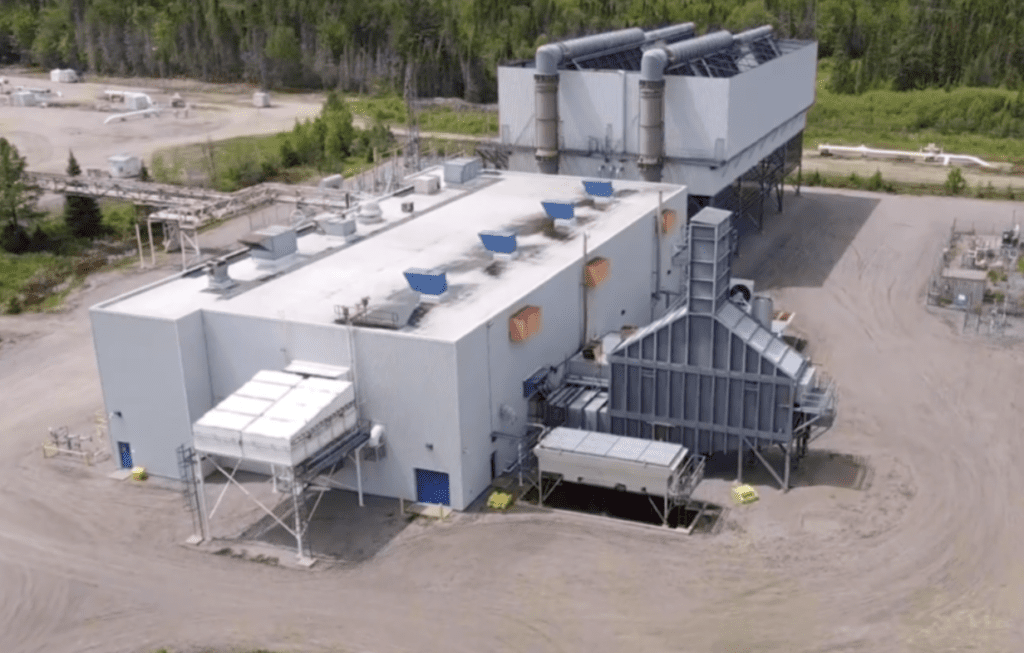Canadian Court Backs Bitcoin Miner's Bid for Gas-Fired Power Plants
A Canada-based digital asset mining and computing company is close to acquiring four small natural gas-fired power plants in Ontario. Hut 8 Mining Corp., headquartered in Toronto, on Nov. 3 announced the Ontario Superior Court of Justice approved the company’s bid for the facilities, and for a bitcoin mine in North Bay.
The gas-fired plants would provide power for Hut 8’s mining of cryptocurrency. The assets have been operated by Validus Power Corp., but recently moved under control of a restructuring company due to Validus’ financial problems. Hut 8’s bid is supported by Macquarie Equipment Finance, a subsidiary of Macquarie Group. Hut 8 said Macquarie will receive a 20% minority equity interest if the transaction is completed; Hut 8 would retain 80% of ownership.
“If our bid to acquire four natural gas facilities in Ontario totaling 310 MW from Validus is successful, we anticipate that the strategic addition of these assets would position Hut 8 as a vertically integrated mining operation, allow us to utilize idle infrastructure and machinery, and provide access to energy pricing certainty,” said Hut 8 CEO Jaime Leverton in a news release. “The facilities are also expected to give us the optionality to pursue revenue-generating activity including selling energy to the market, mining bitcoin, and powering high-demand HPC [high-performance computing] applications like AI [artificial intelligence], which is not only in keeping with our infrastructure-first strategy, but also affords us very compelling flexibility ahead of the halving.”
Hut 8, meanwhile, on Nov. 6 said it continues to pursue an all-stock merger with U.S. Data Mining Group, also known as US Bitcoin Corp. The new company—which would be called Hut 8 Corp.—would be a publicly traded bitcoin miner “focused on economical mining, highly diversified revenue streams, and industry-leading environmental, social, and governance (ESG) practices,” according to a Hut 8 news release.
‘Stalking Horse’ Bid
Leverton in a corporate update on Monday said, “While our mining results remained steady month over month, we made meaningful progress toward building an infrastructure-first, diversified operation that we believe will be a first in our industry. Between being granted approval to submit a stalking horse bid for approximately 310 MW of natural gas power plant assets in Ontario, including our former North Bay site, and our work to close our proposed business combination with US Bitcoin Corp., we are making headway toward creating a new Hut 8 that we believe will have vertically integrated mining operations with revenue generating optionality; diversified fiat revenue streams in high performance computing, hosting, and managed services; and a significant North American footprint, which would position us well to capture upside as we head into the next halving.”

The natural gas-fired plants include a 40-MW facility in Kapuskasing; a 110-MW unit in Kingston; a 120-MW plant in Iroquois Falls; and a 40-MW unit in North Bay. Implementation of the sale, and the investment solicitation process, is led by KSV Restructuring Inc., a Canadian advisory, restructuring, and valuations firm that currently controls the assets. The deal, if ultimately approved, is expected to close by the end of this year.
Strained Relationship
Hut 8 and Validus have had an acrimonious relationship over the past few years, prior to the current transaction. The North Bay power station site was supposed to include a new cryptomining data center for Hut 8 as part of a partnership with Validus. Ground was broken in October 2021, and the companies executed a 100-MW power purchase agreement for the facility, which was expected to be completed in the second half of 2022.
Hut 8 in November of last year charged Validus with defaulting on the agreement, citing timeline concerns and saying Validus was charging Hut 8 higher payments than were negotiated. Validus then said Hut 8 was defaulting on the deal by failing to meet the payment schedule, with Validus saying that was why the company stopped supplying power to Hut 8.
That led to Hut 8 suing Validus in January of this year. Validus in August went into interim receivership, with debts of more than $40 million owed to Macquarie Equipment Finance. Macquarie had supplied turbines and other equipment for Validus’ power generation operations.
A lease agreement between Validus and Macquarie said if Validus defaulted, the company might file for bankruptcy. That led Validus to seek more financing to remain afloat; Todd Shortt, the CEO of Validus Power, in August said he had obtained a five-year loan of $55 million from Canadian lender Dominion Lending Centres.
Allegations by former Validus workers of misappropriation of funds by company management, along with more than $100,000 in unpaid taxes, led Macquarie to state it was not confident Validus could pay back its loans or have sufficient money to fund its operations. Macquarie cited concerns about Validus meeting payroll and insurance obligations. Validus ultimately went into receivership, with KSV Restructuring taking control of Validus’ assets and operations.
That led to Hut 8 beginning the stalking horse bid process, which represents the initial bid on the assets of a bankrupt company. The process sets a low-end bidding bar so that other potential bidders can’t underbid the purchase price. If the initial bid is not approved, other potential buyers then can submit competing offers.
—Darrell Proctor is a senior associate editor for POWER (@POWERmagazine).